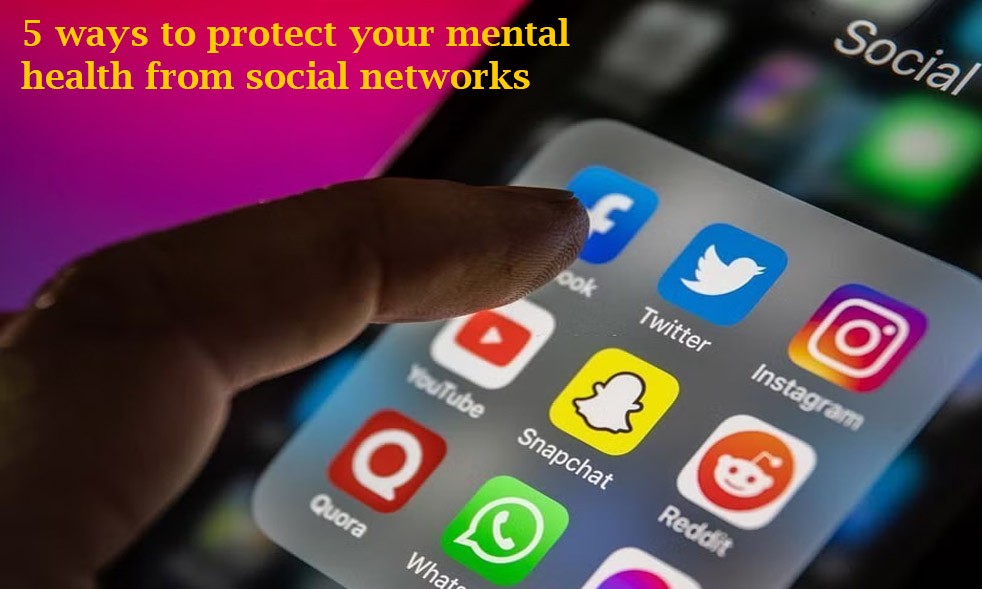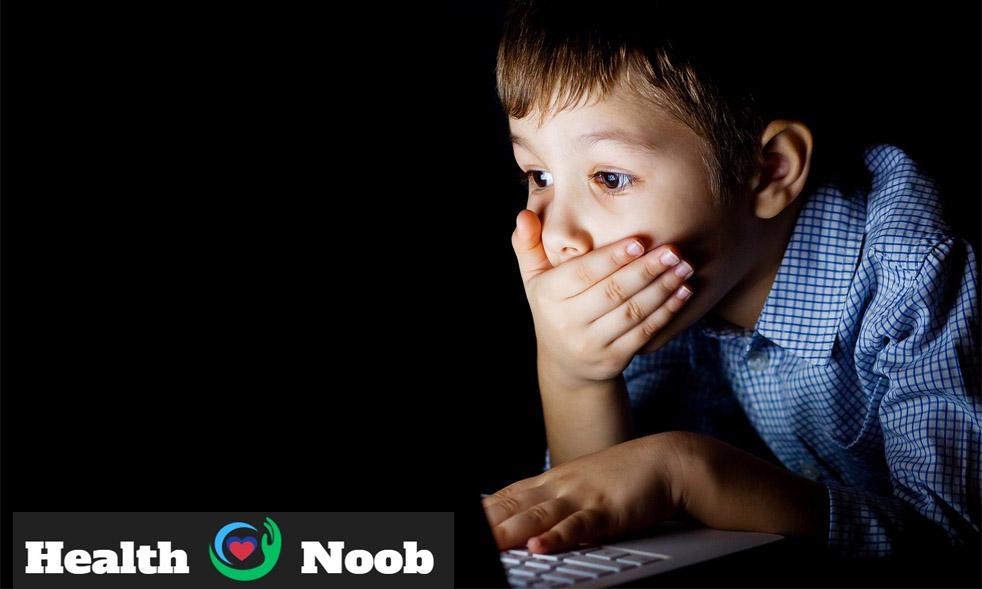We use social media all the time now, and it doesn’t look like that will change any time soon. In fact, 72% of Americans use at least one social media site. This number keeps going up as social media becomes more famous.
There is a lot of evidence that social media can hurt your mental health. Here are some of the pros and cons of social networks, as well as how they can affect your mental health and how you can keep it safe while you use them.
Effects of social networks
The way we talk to each other has changed since social networks came along. With the push of a button, we can talk to other people at any time of the day. People are expected to quickly answer texts and notifications on social media as it grows in popularity. Part of the reason teens and young adults spend so much time on social media is because of these standards.
The Pew Research Center found that 95% of teenagers in the US have access to a smartphone and that 45% of those teens use social media almost all the time. We are very aware of what is going on on the Internet because we can get information at any time of the day. Being online 24 hours a day can make it hard to control your impulses.
It’s like getting more notifications all day long the more you link. These alerts can make it hard to focus, which can hurt your work or school performance, and they can also take your attention away from the people you’re with. A lot of people end the day by looking through their feeds on social media, which can also make it hard to sleep. A lot of teens and young adults fall asleep with their phones close by in case they get a message.
You get dopamine in your brain when someone likes, comments on, or shares something. Dopamine is a prize for your participation. Because of these rewards, people can’t stay away from their screens and become dependent on social media.
Not getting likes on their posts can make someone feel like they’re not good enough. People also often compare their lives on social media to those of celebrities and other well-known people, even though most people only post about the best parts of their lives.
Since social media has only been around for a short time, it is hard to say what its long-term effects will be on people and society. However, there are many effects that we can see in the short term. A lot of the time, people hide problems or bad feelings on social media, like worry or loneliness. While the adrenaline rush makes us feel better at the time, it can make a lot of these problems worse.
Pros and cons of social media
Social media is an important part of our society and has many advantages and disadvantages. Below are some of the pros and cons of using social media.
Advantages
Social media was first made so that people could stay in touch with family and friends. Now, it also lets people from all over the world talk to each other. Everyone can talk to each other through their phone, no matter where they live. Connectivity is one of the best things about social networks. Many people like to meet new people from around the world and stay in touch with family and friends who have moved away.
Here are some more benefits of social networks:
- Awareness: Social media has made it easier for people to talk about a lot of different social problems, like mental health and politics. People can share information, look for tools, and ask questions about a wide range of social issues on these sites.
- Self-expression and creativity: One of the best things about social networks is that they let you say what you want in any way. People from all over the world can read and comment on your writing and art projects online. This can help you make new friends and get rid of bad feelings.
- Access to information: If you use social networks to join online groups, you can get to a lot of information. Social groups and platforms are great places to learn about anything that interests you. You can also ask questions about the subject and get help from people who have more experience in these groups.
- Support: When people are having a hard time, some use social media to get mental support. They do this by joining online support groups or getting in touch with friends and family all over the world. People who have been through the same things as you can help you deal with your feelings at any time of the day through social networks.
Disadvantages
People keep going back to social media because it has so many good things about it. But if you use social networks a lot, there are some important things you should know. Some of the worst things about it are:
- Mental health issues: Using social media a lot can make you feel more alone and lonely, which can make your mental health worse.
- Antisocial behavior: People who use social media frequently limit their face-to-face interaction with people. It’s easier to compare your life to others you follow, which increases the fear of missing out. Antisocial behaviors can also contribute to feelings of loneliness and isolation, worsening mental health conditions.
- Incorrect information: While social media can be a great way to learn more about many things, it can also be used to share false information. Some people can spread false information as fact, and other people will believe it. There are times when this information is safe and times when it is not. For instance, someone could give someone else false information about how to properly get rid of dangerous materials like paint thinner, which could hurt that person.
- Bullying and harassment online: As social media grew in popularity, so did online bullying and harassment. These websites let people bother other people online without being seen and at any time of the day. When someone is cyberbullied, she can’t easily get away from the abuse when she gets home for the day. Follow her around wherever she goes.
- Division: A lot of people think that social media is making it harder for people from different groups to get along with each other. Tensions rise on social media and in real life when division doesn’t go away
Read More: How to take care of your physical and mental health? 8 habits to start achieving
Social network-related mental diseases
The main bad thing about social media is that it can hurt your mental health. When you use social media all the time, it can cause some mental diseases and make others worse. If you use social media a lot, you need to keep an eye on your mental health and do something if you think you are having issues. Here are some mental health problems you should be aware of when you’re on social media.
Depression
Social networks can help people who are depressed, but they can also be harmful. Spending too much time on social media can make you compare yourself to others in negative ways, which can make you feel inadequate or alone. Giving someone false information or bad feedback can make their mental health worse. Also, seeing carefully curated lives all the time on social media can distort reality and make depression worse. Sometimes, interacting with people online might not give you the deep help you need to deal with things. Also, relying only on social networks for support may make people less likely to seek professional help. It’s important to have real-life connections as well as online ones, and when you need to, find reliable mental health tools.
Anxiety
You can have different kinds of anxiety disorders with different signs. Social anxiety is one of the most common anxiety disorders that can happen because of using social media.
The mental illness called social anxiety makes people feel uncomfortable when they are around other people. These are some signs of social anxiety:
- Fear of connecting with other people
- Being afraid to do something embarrassing in public
- Don’t talk to other people or in public.
- When you’re with other people, expect the worst.
- Fear that other people will judge you or see how anxious you are
It can be hard to make friends in real life because of social media. They will feel more at ease in a digital place once they get used to chatting online. They might get social nervousness if they don’t practice talking to people face-to-face enough.
Some other kinds of worry can also be caused by social media. Being around bad news and sadness all the time can make you feel scared and other bad emotions. You might even have panic attacks if you do nothing but read through bad news all the time.
Dysphoria
Social media users often compare themselves. People who see society’s beauty and happiness demands on social media may experience dysphoria, a general unhappiness with life. A person may obsess over a small or imagined imperfection due to body dysphoria.
A model or influencer on Instagram with a different body type can change how someone sees their own. She may desire to alter to please social media influencers, which can be problematic.
A person may acquire eating disorders to fix a trivial or fictitious issue. Malnutrition can result from several illnesses. Life-threatening conditions may occur.
5 ways to protect your mental health from social networks

It is very important to protect your mental health from the bad affects that social networks might have. Here are five easy ways to keep your health safe:
- Limit Screen Time: Take breaks from your screen time. Limit the amount of time you spend each day on social media. Set times to check your accounts so that you don’t waste time scrolling idly for long periods of time.
- Curate Your Feed: Take charge of your online life by unfollowing accounts that make you feel bad about yourself or make you feel bad feelings. Follow pages that encourage happiness, motivation, and mental health.
- Practice Mindful Consumption: Mindful consumption means being aware of how the things you see on social media can change your mood. If you start to feel jealousy, stress, or sadness, take a break and do something that makes you feel better.
- Encourage Real-Life Connections: Make sure you have important face-to-face connections in addition to the ones you have online. You should spend time with friends and family in real life, do sports, and do things that make you happy and fulfilled.
- Get Help from a Professional: If you’re having problems with your mental health, don’t be afraid to get help from a trained therapist or psychologist. With professional help, you can come up with your own ways to deal with stress, worry, and other mental health problems.
Read More: What Is the Difference Between Health and Wellness?
FAQ
1. What are the disadvantages of Internet for mental health?
It has been discovered that spending more than two hours a day online is linked to a higher risk of being the victim of cyberbullying. Overuse of the Internet has also been linked to detrimental impacts on mental health, including an increased risk of depression, anxiety, and suicide ideation.
2. How does social media addiction affect mental health?
How does social media When people see online that they aren’t allowed to take part in an activity, it can change how they think, feel, and even move. A British study from 2018 found a link between using social media and getting less, interrupted, or late sleep, which can lead to sadness, memory loss, and bad grades addiction affect mental health?
Final Thoughts
There is help for you if your use of social media is making your mental health worse. My Psychiatrist hires top-notch psychiatrists who can help you get better with your mental health and overall quality of life. In just 48 hours, we can help you quickly make an appointment to see a therapist and get the help you need.
If you want to improve your mental health, look at our list of providers and make an appointment to get diagnosed and start your very own treatment plan.






